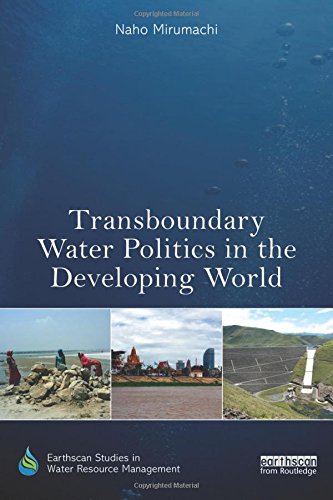

Most ebook files are in PDF format, so you can easily read them using various software such as Foxit Reader or directly on the Google Chrome browser.
Some ebook files are released by publishers in other formats such as .awz, .mobi, .epub, .fb2, etc. You may need to install specific software to read these formats on mobile/PC, such as Calibre.
Please read the tutorial at this link: https://ebookbell.com/faq
We offer FREE conversion to the popular formats you request; however, this may take some time. Therefore, right after payment, please email us, and we will try to provide the service as quickly as possible.
For some exceptional file formats or broken links (if any), please refrain from opening any disputes. Instead, email us first, and we will try to assist within a maximum of 6 hours.
EbookBell Team

4.3
28 reviewsThis book examines the political economy that governs the management of international transboundary river basins in the developing world. These shared rivers are the setting for irrigation, hydropower and flood management projects as well as water transfer schemes. Often, these projects attempt to engineer the river basin with deep political, socio-economic and environmental implications. The politics of transboundary river basin management sheds light on the challenges concerning sustainable development, water allocation and utilization between sovereign states.
Advancing conceptual thinking beyond simplistic analyses of river basins in conflict or cooperation, the author proposes a new analytical framework. The Transboundary Waters Interaction NexuS (TWINS) examines the coexistence of conflict and cooperation in riparian interaction. This framework highlights the importance of power relations between basin states that determine negotiation processes and institutions of water resources management. The analysis illustrates the way river basin management is framed by powerful elite decision-makers, combined with geopolitical factors and geographical imaginations. In addition, the book explains how national development strategies and water resources demands have a significant role in shaping the intensities of conflict and cooperation at the international level.
The book draws on detailed case studies from the Ganges River basin in South Asia, the Orange–Senqu River basin in Southern Africa and the Mekong River basin in Southeast Asia, providing key insights on equity and power asymmetry applicable to other basins in the developing world.